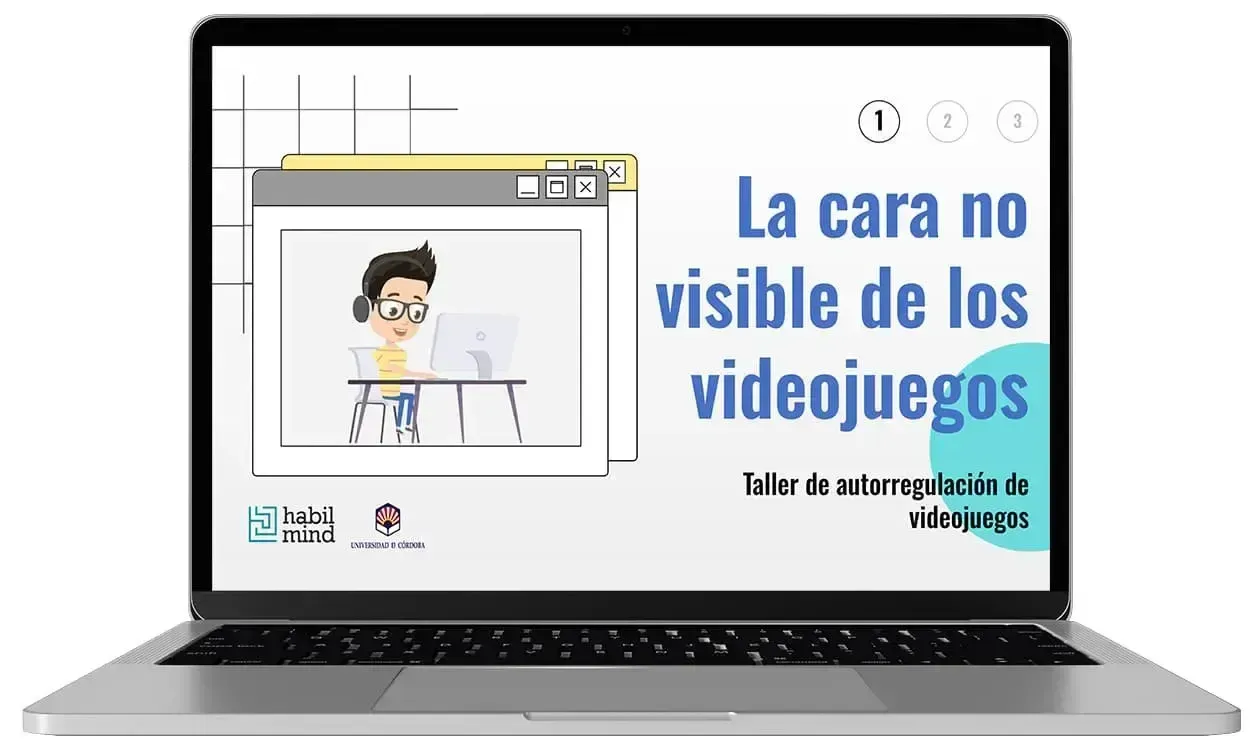Habilmind > Habilmind Programs and Workshops > Screen Overuse Prevention Workshops
Screen Overuse Prevention Workshops
For students and families
The workshop program for preventing screen overuse is the perfect complement for working with students during tutor sessions and with families after administering the Screen Overuse Questionnaire.


.
What does your school obtain from this tool?
01
Prevent
Key factors that significantly impact children's and adolescents' mental health.
02
Avoid
The negative effects of improper screen use on academic performance.
03
Promote
Responsible engagement with modern forms of entertainment and communication.

Problems you prevent (or mitigate) when implementing the Screen Overuse Prevention Workshop
1.Problematic screen use:
- The workshops raise awareness of the risks of excessive screen use and provide strategies for responsible usage.
- By teaching students to self-regulate their use of social media and video games, the likelihood of developing problematic screen habits is reduced.
2.Sleep disturbances:
- The workshops address the impact of screen use on sleep and offer guidelines for establishing healthy disconnection habits before bedtime.
- Educating students and their families on the importance of limiting screen time before bed helps prevent sleep disorders associated with excessive screen use.
3.Sedentary lifestyle and passive leisure:
- The workshops promote a balanced approach to screen time, encouraging students to engage in physical activities and active leisure.
- By raising awareness of the risks of a sedentary lifestyle and fostering a more active way of life, the workshops help mitigate the negative effects of excessive screen use on students’ physical and mental health.
On which platforms of the Habilmind Ecosystem is this tool available?
Infographics
Infographic - Video Games: 10 Tips for Safe Gaming
Self-regulation workshop on video games... Read more
Infographic - Video Games: 10 Tips for Managing Screen Time
Tips for managing video game time... Read more
Infographic - Video Games: 10 Tips for Communication in Video Games
Tips for effective communication in video games... Read more






























